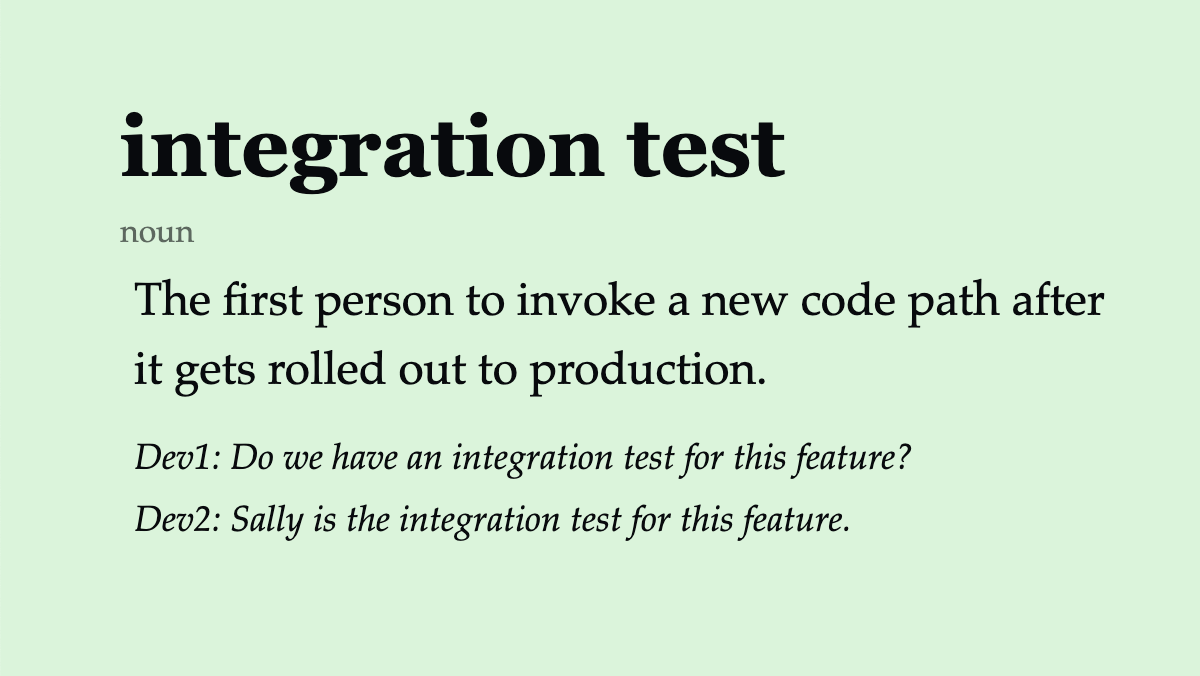Changelog News
Developer news worth your attention
Jerod here! 👋
Adam asked a BIG question on the most recent Friends: (chapter link)
“Who here is addicted to their phone?”
I’ve been hyper-aware of my own phone addiction ever since, and I even left it at home on purpose for an entire evening out last week. What happened next might shock you…
Nothing. I didn’t miss an emergency. I didn’t get lost driving. I didn’t even think much about my phone beyond that first 15-30 minutes of feeling “naked” without it. It was just a really nice time.
I say all that to say this: maybe try life without your phone for a bit. Can’t suffer the thought? Come on, dream a little…
Ok, let’s get into this week’s news.
🎧 Chasing that next BIG thing
Drew Wilson is back! It’s been more than a decade since Adam and Drew have spoken and wow, Drew has been busy. He built Plasso and got acquired by GoDaddy. He built a bank called Letter which didn’t work out…and now he’s Head of Design at Clerk and back to chasing that next big thing. 🎥 VIDEO
😳 Firefox could be doomed
The court’s ruling on the U.S. v. Google LLC case on search competition won’t merely impact the tech giant itself.
The DOJ wants to bar Google from paying to be the default search engine in third-party browsers including Firefox, among a long list of other proposals including a forced sale of Google’s own Chrome browser and requiring it to syndicate search results to rivals.
Mozilla CFO Eric Muhlheim testified in Google’s defense that losing the revenue from Google’s default placement deal would doom the company and serve to only further Google’s browser monopoly. Why? Because Firefox makes up 90% of Mozilla’s revenue and ~85% of Firefox revenue comes from that single deal alone.
On cross-examination by the DOJ, Muhlheim conceded that it would be preferable not to rely on one customer for the vast majority of its revenue, regardless of the court’s ruling in this case.
This single point of failure for Mozilla’s business may be shocking, but it’s not new. I consider it a case of gross ineptitude that Mozilla leadership hasn’t found a way to diversify their income, considering just how beholden they are to a single customer (who also happens to make a rival browser to theirs). What path might they take to get there? I enjoyed this comment by “Sly Mr. Fox” on the linked Verge article:
Let me pay you money for Firefox. Stop doing all the other weird crap and just make a good, user-focused (really, actually user-focused, not “we value our users voices!” user-focused) browser, and let me pay you money for it. This is not hard. Resolve all the conflicts of interest, be the Kagi of browsers. No, you won’t beat Chrome, but you’ll do good work and help to keep a free internet.
🤓 I’d rather read the prompt
Clayton Ramsey, a PhD student studying C.S. at Rice University, grades students’ assignments and regularly sees ChatGPT copy pasta. So, he wrote this article as a plea to everyone (not just his students, ALL of us):
Don’t let a computer write for you! I say this not for reasons of intellectual honesty, or for the spirit of fairness. I say this because I believe that your original thoughts are far more interesting, meaningful, and valuable than whatever a large language model can transform them into.
My name is Jerod Santo, and I approve this message. I write. A lot. I’ve literally written this newsletter every Monday morning one hundred and forty three times and I am here to tell you that I never filter a single character through an LLM. Not because I’m not lazy. I’m super lazy! So lazy, in fact, that I didn’t take the time to rewrite that last sentence to make it more scrutable. And guess what, I’m not rewriting that one either! See, my laziness abounds.
I don’t use an LLM for writing because their stuff is just mid. By design. They’re professional C students. And I’m just not interested in C content. I’m shooting for at least a B-
🎰 Tim Cook’s big (losing) gamble
Surely you’ve heard of the recent judgment against Apple’s “requirement that apps only use Apple’s payment methods and not link to external methods.” Developers rejoiced when Judge Yvonne Gonzalez Rogers excoriated Apple in her finding:
Apple’s response to the Injunction strains credulity. After two sets of evidentiary hearings, the truth emerged. Apple, despite knowing its obligations thereunder, thwarted the Injunction’s goals, and continued its anticompetitive conduct solely to maintain its revenue stream. Remarkably, Apple believed that this Court would not see through its obvious cover-up.
One interesting fact that was exposed in the process was that Tim Cook eschewed Phil Schiller’s advice that Apple comply with the original 2021 injunction:
Internally, Phillip Schiller had advocated that Apple comply with the Injunction, but Tim Cook ignored Schiller and instead allowed Chief Financial Officer Luca Maestri and his finance team to convince him otherwise. Cook chose poorly.
I’m reminded of the ancient king of Israel, Rehoboam, who eschewed (elderly) wise council when he came to power, opting to increase the tax burden on the people. The 12 tribe kingdom divided, leaving only two tribes under Reheboam’s rule. Will Tim Cook’s iOS kingdom see a similar fate? Dan Moren thinks so:
To paraphrase the immortal words of one of our greatest heroines, the more Apple tightens its grip, the more revenue will slip through its fingers.
The thing that Apple used to be so good at understanding is that the bottom line isn’t just about how the numbers add up. Apple has long been a company that prides itself on its image and its brand, and marring that, whether it be via contentious relationships with developers or seemingly bending over backwards for authoritarians, does have an effect in the long term.
💰 Use AI to generate fully-working apps in Retool
Thanks to Retool for sponsoring Changelog News
Retool has been hard at work building powerful, enterprise-ready AI capabilities. Today they’re opening an invite for customers to request early access to something new: using AI to generate fully-working apps in Retool.
If you’re interested in getting early access to these powerful new capabilities and helping shape the future of AI in Retool…
Join the waitlist for early access. 🤫
🥲 Migrating away from Rust
In 2023, Brandon Reinhart picked Rust and the Bevy game engine to build his game, Architect of Ruin. However, over the course of six weeks, he rewrote the game entirely in C# and has been using it with Unity for the past three months. In this blog post, Brandon explains why he decided to migrate away from Rust / Bevy:
I want to begin by stating that I anticipated many of these challenges before they manifested. I knew that using a game engine early in its development lifecycle would pose unique risks and costs. I considered those costs to be likely worthwhile and surmountable. My love of Rust and Bevy meant that I would be willing to bear some pain that other game developers might choose to avoid. I didn’t walk blindly into these specific problems, but they bit harder than I was expecting.
He goes on to describe challenges he faced with collaboration, abstraction, keeping up, learning, and modding with Bevy. Looking back at the rewrite, Brandon learned two important lessons from the entire ordeal:
- “I failed to fairly evaluate my options at the start of the project. Rust is great and I love it, but I didn’t give alternatives a fair shake. In particular, I didn’t spend time examining the differences between Unreal and Unity more closely.”
- “Sometimes you have to burn time to earn time. I think we are way ahead of where we would have been had we stuck with Bevy. Our agility in implementing rendering features while also pushing gameplay forward is much higher.”
💣 I use zip bombs to protect my server
Ibrahim Diallo came up with a fun, new (to me) way to troll malicious bots that cause havoc in his life:
At my old employer, a bot discovered a wordpress vulnerability and inserted a malicious script into our server. It then turned the machine into a botnet used for DDOS. One of my first websites was yanked off of Google search entirely due to bots generating spam. At some point, I had to find a way to protect myself from these bots. That’s when I started using zip bombs.
A zip bomb starts off as a small compressed file, but upon download it expands into a very large file that can overwhelm a machine’s disk. Ibrahim will tell you exactly how he build and sends zip bombs, but first:
Before I tell you how to create a zip bomb, I do have to warn you that you can potentially crash and destroy your own device. Continue at your own risk.
🎙️ When life gives you LLMs…
Our old friend, Zeno Rocha, returns to discuss email etiquette, the strange new world of AI SEO, the coming LLM enshittification, and SLATE Auto – the just-announced $20k modular EV truck. 🎥 VIDEO
👏 Redis is open source again
Redis creator, Salvatore Sanfilippo:
I understand that the core of our work is to improve Redis, to continue building a good system, useful, simple, able to change with the requirements of the software stack. Yet, returning back to an open source license is the basis for such efforts to be coherent with the Redis project, to be accepted by the user base, and to contribute to a human collective effort that is larger than any single company. So, honestly, while I can’t take credit for the license switch, I hope I contributed a little bit to it, because today I’m happy. I’m happy that Redis is open source software again, under the terms of the AGPLv3 license.
Congrats, Salvatore, on what might become a comeback story for the ages…
💩 The enshittification of tech jobs
Cory Doctorow is at it again:
Tech workers are weird candidates for vocational awe, given how well-paid they are, but never let it be said that tech bosses don’t know how to innovate – they successfully transposed an exploitation tactic from the most precarious professionals to the least precarious.
🪶 A Rust web framework that does not use async
Feather is a lightweight, DX-first web framework for Rust — inspired by the simplicity of Express.js, but designed for Rust’s performance and safety.
I have to admit Feather’s API, at least in its simplest form, looks pretty sweet without any async calls in there…
📐 Don’t forget your (un)ordered list
Is it the best list of links you’ll find in a software newsletter? Maybe
Is it the shapeliest list of links you’ll find in a software newsletter? Absolutely
- What the heck is AEAD again?
- jQuery Reunion - 20 years later
- The one-person framework in practice
- One SQLite database per tenant in Rails
- Oxide’s Compensation Model: How is it going?
- Connect your AI agents to 600+ tool integrations
- Business founders are less valuable than they think
- How I reached $250K in annual revenue without investors
- A collection of fun GRUB themes to spice up your bootloader
- Swap non-privacy respecting sites with open source privacy frontends
📚 The Developer’s Dictionary
WE’LL DO IT LIVE 🙈

That’s the news for now, but we have some great episodes coming up this week:
- Wednesday: Nathan Sobo on giving Zed agentic AI
- Friday: Gerhard Lazu for Kaizen 19
Have a great week, reply “YES!” if you read this, and I’ll talk to you again real soon. 💚
–Jerod

